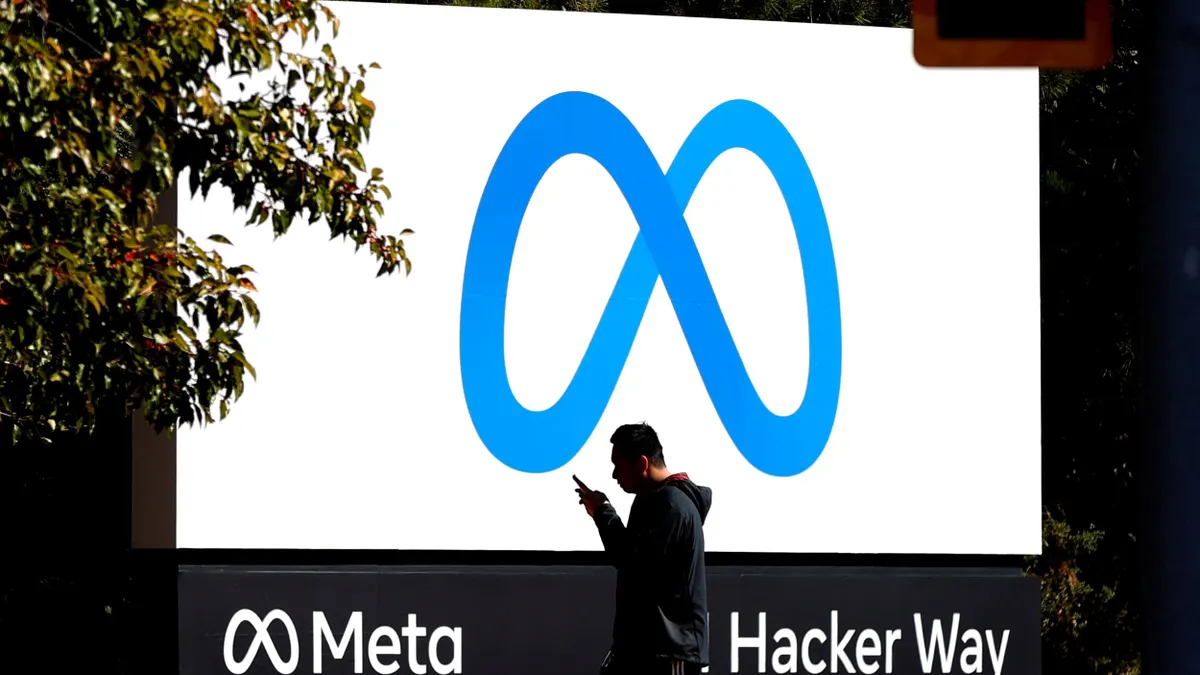Dive Brief:
- Meta’s employee compensation costs grew at an accelerated pace in the third quarter, driven by “technical” hires, particularly artificial intelligence talent, CFO Susan Li said Wednesday.
- The tech behemoth ended Q3 with over 78,400 employees, up 8% year-over-year, driven by factors such as “hiring in priority areas of monetization,” Li said during an earnings call.
- Looking head, the company expects employee compensation to be its second largest expense next year, she said.
Dive Insight:
The news comes after reports of an AI hiring spree at Meta earlier this year.
In August, the company froze hiring in its AI division after spending months snapping up more than 50 AI researchers and engineers, The Wall Street Journal reported. CEO Mark Zuckerberg approached employees of OpenAI, Google DeepMind and other labs with “email overtures and WhatsApp messages that quickly led to offers that in some cases reached $100 million in total compensation,” the report said.
The issue of Meta’s employee compensation costs came up on Wednesday as part of the company’s earnings results for its fiscal third quarter ended Sept. 30.
The owner of Facebook and Instagram posted $51.2 billion in total revenues for the quarter, a 26% increase compared with the year-earlier period.
Net income fell by about 83% year over year to $2.71 billion, largely due to a one-time corporate tax charge of $15.93 billion, stemming from implementation of the One Big Beautiful Bill Act, the company said.
“We expect a significant reduction in our U.S. federal cash tax payments for the remainder of 2025 and future years due to the implementation of the One Big Beautiful Bill Act,” Meta said in a press release. “However, the implementation also led to the recognition of a valuation allowance against our U.S. federal deferred tax assets, reflecting the impact of the U.S. Corporate Alternative Minimum Tax.”
Excluding the one-time tax charge, net income would have been $18.6 billion, Meta reported.
Capital expenditures, including principal payments on finance leases were $19.4 billion, driven by investments in servers, data centers and network infrastructure, according to Li. Total expenses were $30.7 billion, up 32% compared to last year.
Li said total expenses will grow at a “significantly faster percentage rate” in 2026 compared with this year, with growth primarily driven by infrastructure costs, including incremental cloud expenses and depreciation.
“Employee compensation costs will be the second largest contributor to growth as we recognize a full year of compensation for employees hired throughout 2025, particularly AI talent and add technical talent in priority areas,” she added.
In the wake of the news, Meta’s stock dropped more than 10% on Thursday.
“We think the market's reaction to Meta's earnings report was accentuated by Alphabet and Microsoft reporting on the same day, with the other two hyperscalers seeing material revenue expansion in their cloud businesses due to AI,” Morningstar analyst Malik Ahmed Khan said in a client’s note.
“Meta, on the other hand, is essentially building infrastructure at a similar scale without having the ability to rent out capacity for a tidy profit. As a result, investors are viewing Meta's investments in AI as much riskier than those of its peers, because it doesn't have the ability to rent out capacity for AI and non-AI workloads if AI demand doesn't continue to boom.”















